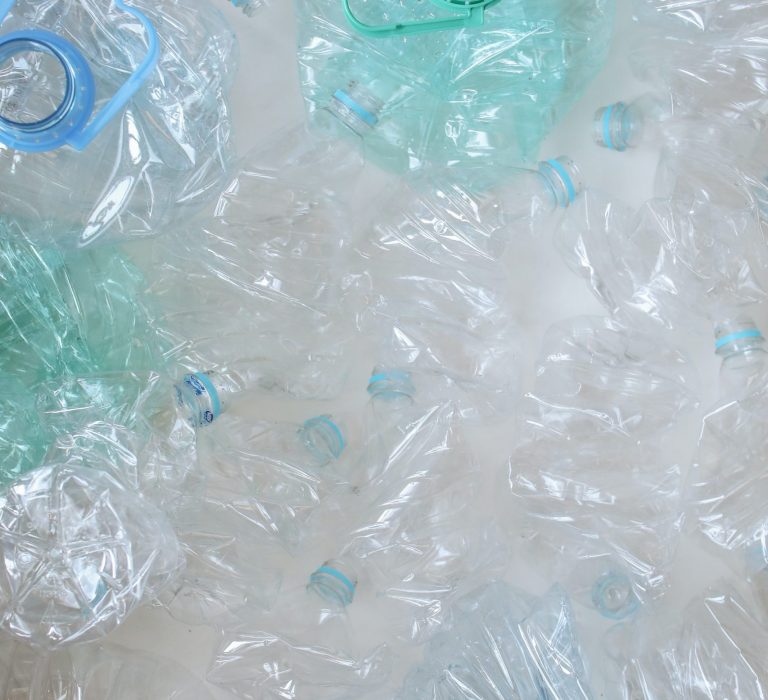
Introduction
TerraCycle branding shows up alongside lots of different companies, brands, and industries. Many times, TerraCycle partners with a brand you might not think of as a sustainable brand. I just read a story about TerraCycle working with Taco Bell to recycle used sauce packets. Taco Bell and sustainability don’t exactly come to mind like peanut butter and jelly, but it absolutely grabs your attention!
If you purchase items that are almost exclusively sustainable and eco-friendly, then you might not see the TerraCycle brand pop up as much. Regardless, their recycling program is interesting and unlike anything else I’ve heard of.
So what is TerraCycle? What’s their deal? Why do they partner with seemingly random brands to take such weird items and recycle them? How does it work? I have so many questions!
What is TerraCycle
TerraCycle is a recycling company that recycles items that “aren’t” recyclable…I know how that sounds. They work with companies to take items that you wouldn’t be able to put in your recycling bins, and they recycle them for you. For example, gum or even used Taco Bell sauce packets.
Before I go into how TerraCycle works in more detail, let’s take a look at recycling as it normally happens. TerraCycle is kind of like recycling in the extreme, so understanding the bigger picture helps us grasp where TerraCycle fits in on the bigger picture.
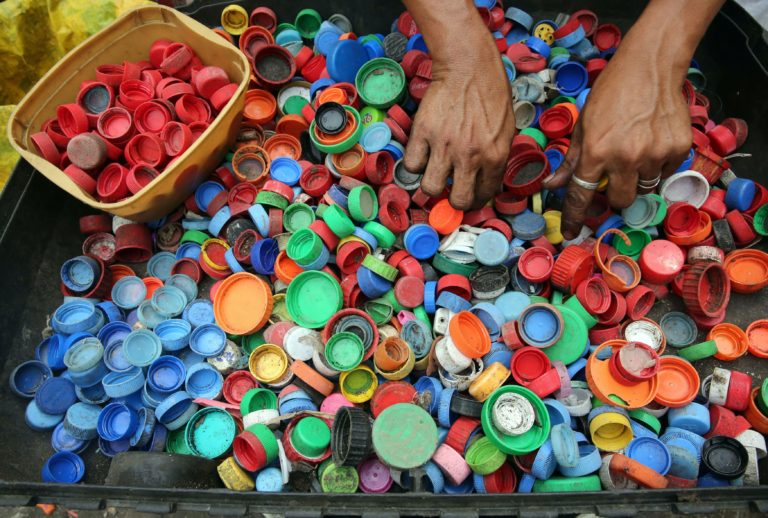
Recycling
Recycling is a loaded topic, and it’s so important for us to remind ourselves of all its benefits and flaws. It is an intersection for so many discussions about sustainability.
Not everything is recyclable and even if it is, plastic can only be recycled so many times before it has to go to the landfill (unlike aluminum and glass).
A lot of big plastic producers spent tons of money telling us that it’s our responsibility to recycle the plastic they’ve sold us, shifting the burden from them to individual consumers. Recycling isn’t the answer to our climate crisis, avoiding the production in the first place is.
The last thing I want to note here about recycling is, it’s expensive! It doesn’t just happen, bottles don’t just get collected and turned into new bottles. They get collected, sorted, sold, and then hopefully they get turned into a new product.
Recycling is an industry, and companies have to be willing to spend more money on recycled plastic because it costs more to create than virgin plastic.
Programs like TerraCycle are even more expensive than normal recycling. That’s because they recycle products that the recycling industry has basically said, “there’s no way we can make money off that so we can’t accept it.”
Really that comes down to, it would take too much time, too many people, and there won’t be enough buyers for the end product of recycled gum, or sandals, or ____ (fill in the blank). That really means that TerraCycle isn’t as much a solution as it is a temporary plug in a really big leak.
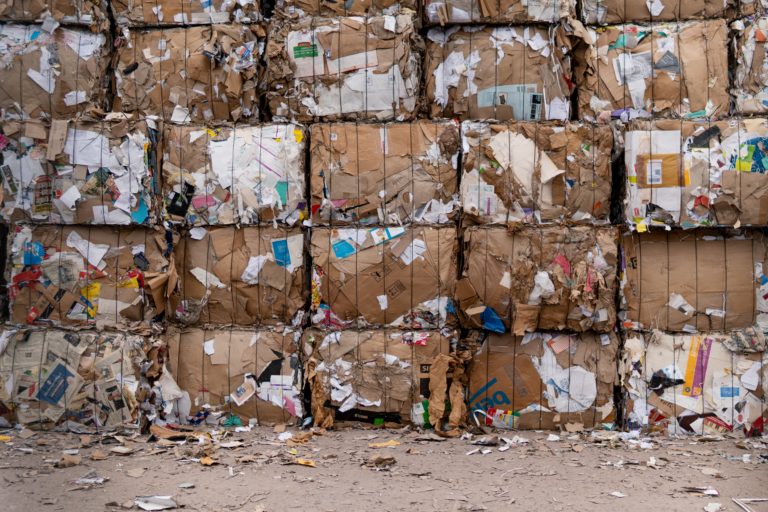
What does TerraCycle do?
I’m not going to reiterate the recycling part here, for your sake. So let’s look at the process a little bit. Basically, a company will voluntarily partner with TerraCycle to recycle specific items.
I’ve already mentioned gum and sauce packets, but other items might include sandals, shoes, baby gear, glue sticks, watercolor containers, and highlighters.
The collection process is partly paid for by the partnering brand. Their website claims that the program is funded by brands, manufacturers, and retailers.
You might be wondering, well how much do those brands have to pay? I don’t know. I wasn’t able to find that info online, and it seems like other people can’t find it either.
This is less than ideal transparency. Transparency is a big deal in sustainability, it helps consumers hold brands and companies accountable to the image they’re projecting. Not knowing how much brands pay isn’t a dealbreaker, but it is a red flag.
How does TerraCycle Work?
You, the consumer/recycler, have to sign up for a specific program with TerraCycle called a campaign. You have to do that in order to get a free shipping label and send your materials to TerraCycle.
There are other options beyond campaigns but I’m going to focus on brand sponsored campaigns because those are free. And, I think it’s the most used service from TerraCycle.
Each TerraCycle campaign is unique. Meaning, it is specific to one brand only. You have to sign up for each campaign separately. So this means, if you want to sign up to recycle your sandals and your sauce packets, you need two different campaign accounts.
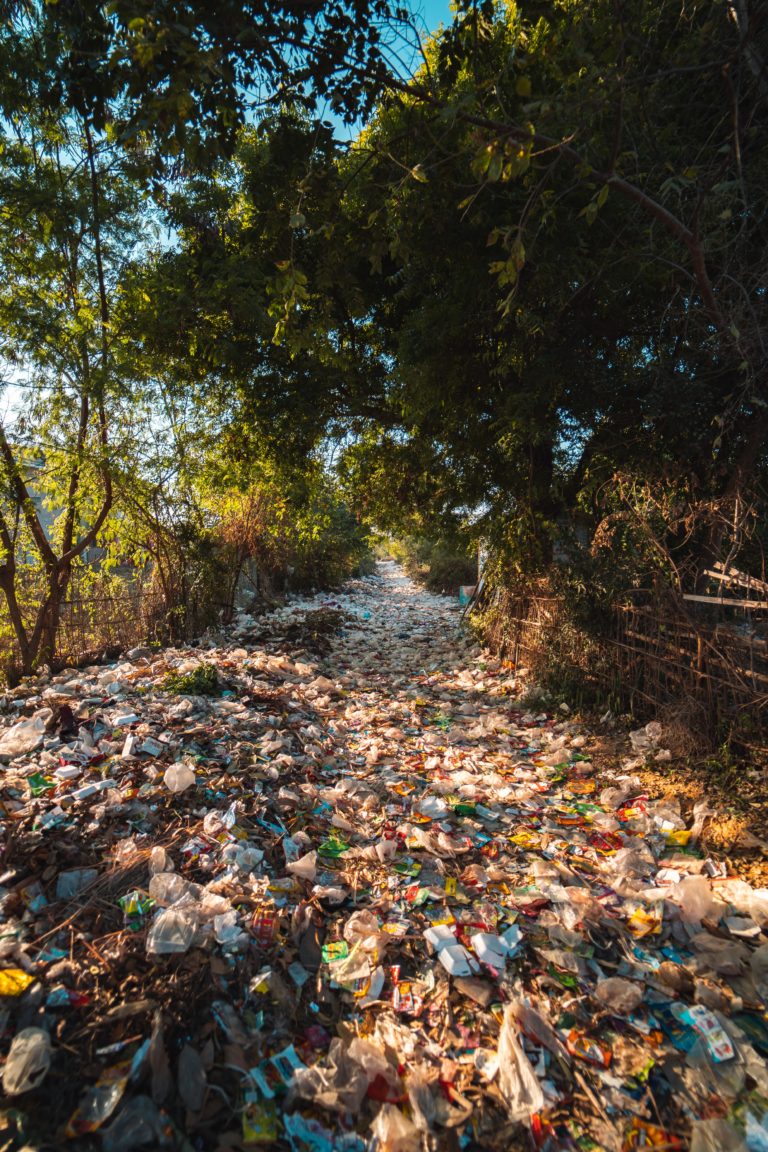
Why should I care?
What's appealing about TerraCycle?
This is kind of a loaded concept. On one hand, brands are helping to fund the recycling of their hard-to-recycle products. This comes across as an altruistic action. You might think that’s great, “they’re paying to have their products recycled, how eco-friendly!”
Generally, I see people lump this brand-sponsored pay-to-recycle idea in with the idea of carbon offsets. That’s when a company pays someone else to reduce carbon by a specific amount. Both are linked, I think, by their “altruistic” appearance. But, they definitely aren’t the same.
The general idea is that companies will be more likely to decrease wastefulness if they have to pay for it. In TerraCycle’s case, a company would be financially discouraged from continuing to produce hard-to-recycle products because they have to fund a TerraCycle campaign.
What's problematic about TerraCycle?
So does paying for these programs really motivate companies to be less wasteful? Not necessarily. Since we don’t know how much brands have to pay, we can’t know for sure that it really bothers them at all. Would you be more likely to change your behavior if I said it cost you 1 penny a day, or $3 a day?
The higher something costs (or really penalizes) a company, the more likely they’ll be to bring about change. To stick with the Taco Bell example, if Taco Bell is paying a bunch of money to recycle their sauce packets, they’ll be way more likely to just find more sustainable packaging in order to avoid paying even more money.
But we just don’t know what it costs brands to participate or if participation is helping to curb wasteful behavior. That’s why some people consider the whole TerraCycle idea to be a form of Greenwashing.
Greenwashing is when a brand tries to portray to consumers a greener, more sustainable, and more eco-friendly image than what is real.
If a company can say they’re partnering with TerraCycle and working to make non-recyclable products recyclable, you might feel less guilty or less inclined to change your behavior. That means, you keep buying what those companies want you to, which is their unsustainable products.
I mention all this about the lack of transparency, no clear behavior impact, and greenwashing because even though there isn’t a super-clear and obvious result of TerraCycle campaigns, you could still participate in a campaign without “buying into” greenwashing. Ultimately, this is one of those moments where more research might be needed on a case by case basis.
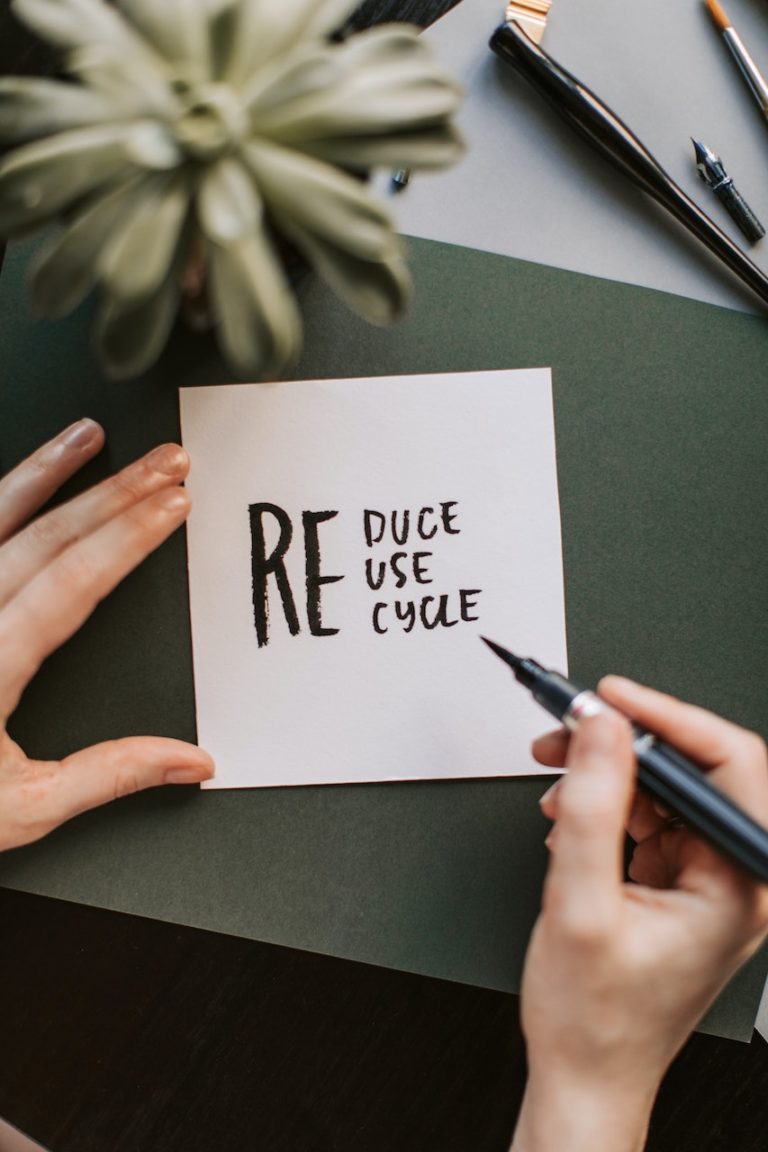
Final Thoughts
In all of my searching, I didn’t find anything definitively saying TerraCycle enables companies to make unsustainable products but I also didn’t find anything touting widespread behavioral change either.
I think the idea sounds great, in theory. And really, it seems like that’s just where it is right now…a practicing theory. TerraCycle was founded in the early 2000’s, which means we’re going on 20+ years here.
At 20 years and beyond, I would expect to have a clearer picture of how a company and program like this impacts change but it seems like that’s just not the case. For that reason, I’m going to tread with caution and you should too.
I think the idea is cool! And even I get swept up into the awesome concept and catchy headline of turning Taco Bell sauce packets into new products. But, we would be wise to remind ourselves that this program should not allow us to make unwise purchasing decisions.
Avoiding the product and/or reusing something in its place are much better alternatives than recycling. So when in doubt, try to reduce and reuse before you resort to recycling, especially when it comes to a headline-worthy TerraCycle program.
Thanks for joining me today! If you liked this content and want to see more, please subscribe to my newsletter. You can do that here!